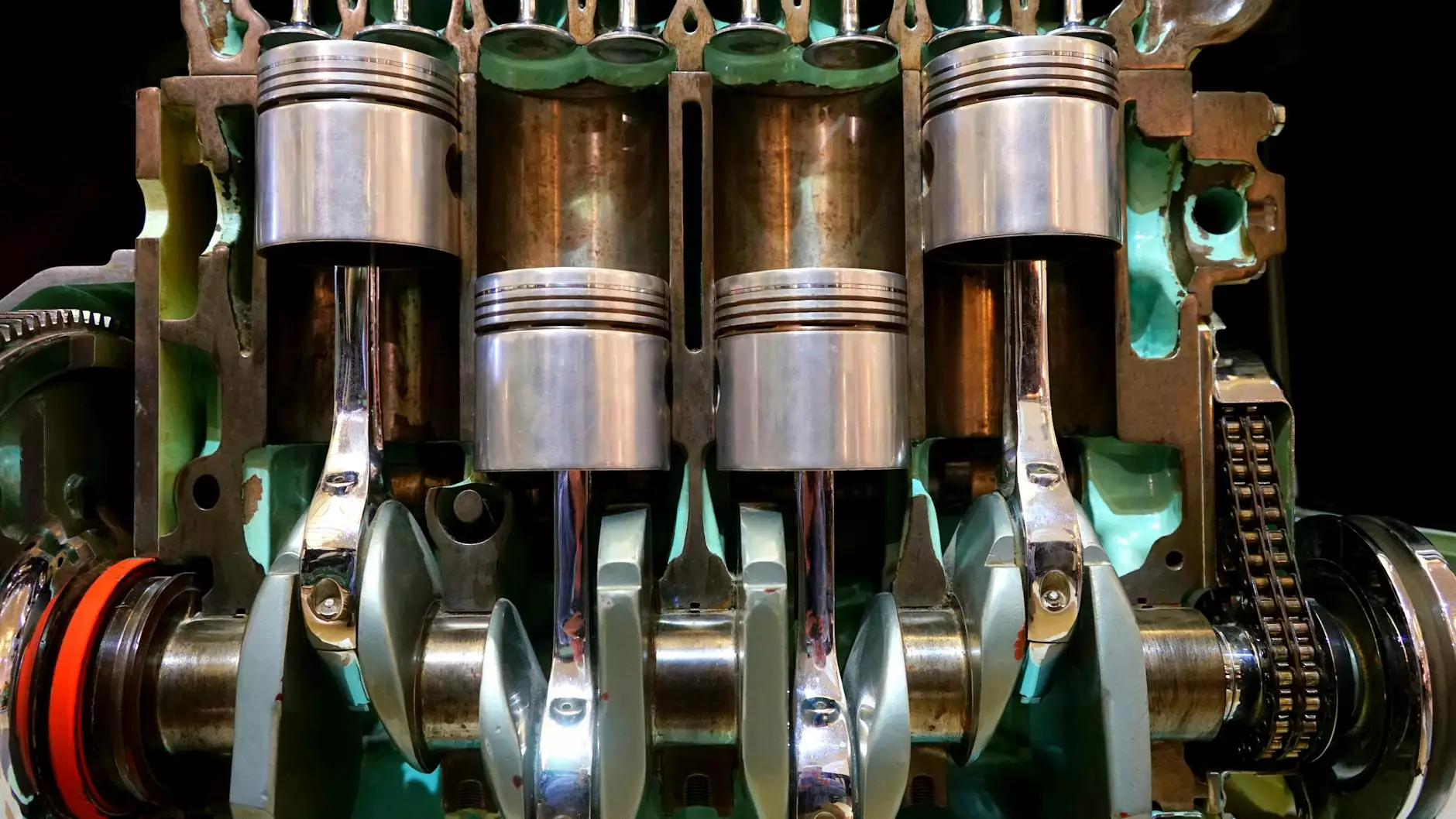The Essential Guide to Crankshaft Parts: Elevate Your Diesel Engine Performance

When it comes to diesel engines and their performance, one cannot underestimate the significance of crankshaft parts. The crankshaft is a vital component that converts the linear motion of the pistons into rotational motion, allowing the engine to produce power. Understanding the intricacies of crankshaft components, their roles, and how they interact within the engine system is essential for any diesel engine operator or enthusiast. In this comprehensive guide, we will delve deep into the world of crankshaft parts, their functionalities, and their impact on engine performance and reliability.
What is a Crankshaft?
The crankshaft serves as the backbone of the engine, transforming the reciprocating motion of the pistons into rotational energy used to drive the vehicle. It is a complex assembly made from high-strength materials designed to withstand the intense stresses and forces generated during combustion. A well-engineered crankshaft is crucial for ensuring effective engine operation.
Understanding Crankshaft Parts
Crankshaft components can vary significantly depending on the engine design and its purpose. Here’s a breakdown of the key parts of a crankshaft that play a fundamental role in engine operation:
- Main Journal: The main journals are the portions of the crankshaft that connect to the engine's block. They provide support and enable the crankshaft to rotate smoothly.
- Rod Journal: These are the sections of the crankshaft where the connecting rods attach. The rod journals convert the piston's upward motion into rotational motion.
- Crank Pins: Crank pins are fixed points on the crankshaft where the connecting rods pivot, playing a significant role in the crankshaft's movement.
- Counterweights: Attached to the crankshaft to balance the rotating assembly, counterweights help reduce vibration and improve stability during operation.
- Flange: The flange serves as the attachment point for various engine components, such as the flywheel or harmonic balancer.
Why Quality Crankshaft Parts Matter
Investing in high-quality crankshaft components is essential for several reasons:
- Durability: Premium crankshaft parts are made from high-grade materials that can endure high temperatures and pressures found within a diesel engine.
- Performance: Quality components ensure better engine performance, leading to increased horsepower, torque, and fuel efficiency.
- Longevity: Durable crankshaft components reduce the risk of premature failure, extending the lifespan of the entire engine.
- Reduced Maintenance: High-quality parts result in fewer repairs and less downtime, ultimately saving money in the long run.
Factors Impacting Crankshaft Performance
Several factors contribute to the overall performance of crankshaft parts in an engine:
1. Material Quality
The material used to fabricate the crankshaft and its components is critical. Forged steel and high-strength alloys are often preferred for their resilience and ability to withstand the intense operating conditions of a diesel engine.
2. Precision Engineering
Precision in the manufacturing process ensures that crankshaft parts fit together perfectly, allowing for smooth operation without unnecessary friction. Poorly manufactured parts can lead to vibrations, uneven wear, and premature failure.
3. Balancing
Proper balancing of the crankshaft is essential to minimize vibrations. Imbalances can lead to increased stress on engine components, reduced efficiency, and a shortened lifespan.
4. Maintenance Practices
Regular maintenance is key to the longevity and efficiency of the crankshaft and its components. Adhering to the manufacturer’s recommendations for oil changes, inspections, and part replacements can avoid costly repairs.
Common Issues with Crankshaft Parts
Despite their robust design, crankshaft components can experience issues that affect engine performance. Here are some common problems:
- Wear and Tear: Over time, crankshaft parts can wear out due to friction and stress, leading to reduced performance.
- Crankshaft Failure: This serious issue can arise from lubrication failure, resulting in complete engine failure.
- Misalignment: Improper alignment during installation can lead to uneven wear and catastrophic failure if not corrected.
- Oil Starvation: Insufficient lubrication can cause overheating and damage to crankshaft parts.
Choosing the Right Crankshaft Parts Supplier
Selecting a reputable supplier for your crankshaft parts is essential for ensuring quality and reliability. Here are some tips on choosing the right supplier:
- Reputation: Look for suppliers with a solid reputation in the industry. Check reviews and testimonials from other customers.
- Product Range: A good supplier should offer a wide range of crankshaft parts to cater to different diesel engines and specifications.
- Warranty: Ensure that the supplier provides a warranty on their products, as this is a sign of confidence in their quality.
- Expertise: Choose suppliers with in-depth knowledge of diesel engine components and potential applications.
Conclusion
The performance and longevity of your diesel engine depend significantly on the quality and integrity of its crankshaft parts. By understanding the critical components of a crankshaft and the factors influencing its performance, you are better equipped to make informed decisions about maintenance and parts replacement. Investing in high-quality crankshaft components and choosing a reliable supplier like client-diesel.com will ensure your diesel engine operates smoothly and efficiently. Remember, quality does not come cheap, but the long-term benefits far outweigh the initial costs. Opt for the best parts crankshaft to give your engine the reliability and power it deserves.









